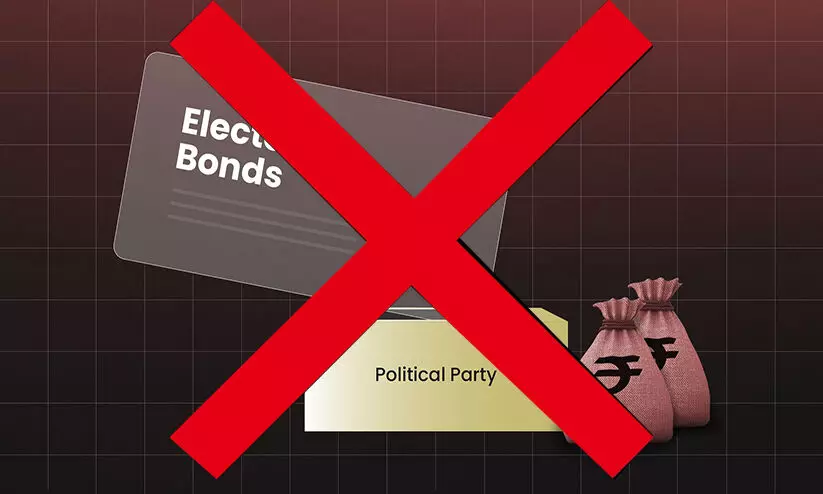
Centre’s Electoral Bonds Scheme fails Constitutional validity test in SC
text_fieldsIn a landmark decision, the Supreme Court declared the electoral bonds scheme unconstitutional, emphasizing the importance of transparency in political funding. The ruling, delivered by a five-judge bench, highlighted that anonymous electoral bonds infringe upon the Right to Information and Section 19(1)(a).
The electoral bonds, introduced in the 2017 Union Budget under the tenure of the late Finance Minister Arun Jaitley, allowed interest-free, anonymous donations to political parties. The primary concern raised by transparency activists was the lack of information about the donors, preventing voters from knowing who funded which party and to what extent.
Transparency advocates argued that the scheme replaced the previous requirement for parties to disclose details of donors contributing more than Rs 20,000. The Supreme Court, in its ruling, acknowledged the necessity of information about political funding for making informed electoral choices.
The court also addressed the broader issue raised by petitioners, who sought to declare all political parties as public offices, bringing them under the Right to Information Act. This move would compel political parties to disclose their income and expenditure.
The electoral bonds scheme permitted corporations and individuals to donate money anonymously by purchasing bonds from the State Bank of India (SBI). The SBI maintained exclusive access to the details of bond purchasers. Unencashed bond proceeds within 15 days were supposed to be deposited in the Prime Minister's Relief Fund.
The petitioners argued that the scheme disproportionately favoured the ruling government, as anonymity could lead to concessions in the form of licenses, policy changes, and government contracts.
Advocate Prashant Bhushan, representing Common Cause and the Association for Democratic Reforms (ADR), highlighted the citizens' right to information, emphasizing the challenges in identifying sources of donations among the vast number of registered companies.
Senior Advocate Kapil Sibal raised concerns about the lack of a requirement connecting donations to the electoral process. He noted that the bond amount could be redeemed at any time for any purpose.
In defense of the scheme, Solicitor General Tushar Mehta argued that the focus was on confidentiality, not anonymity. He cited the recognition of the right to privacy as a fundamental right by the apex court in 2019. Mehta explained the government's efforts to curb black money in politics and asserted that any gaps in the scheme did not warrant its invalidation.






















